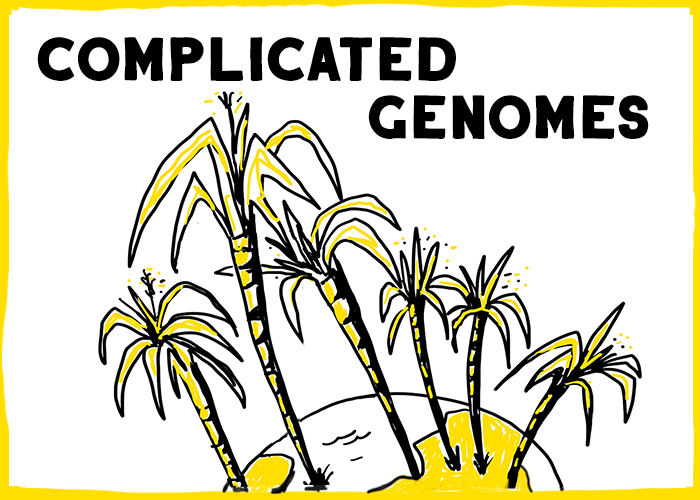

















Scientists from around the world converge at HudsonAlpha for ENCODE meeting
Later this summer, more than 40 scientists, representing many of the world’s leading research organizations, will meet at HudsonAlpha to facilitate the comprehensive identification of functional elements in the human genome sequence. “It’s a meeting of the ENCODE Analysis Working Group,” explained Dr. Chris Gunter, director of research affairs at HudsonAlpha.
ENCODE – the ENCyclopedia Of DNA Elements – was launched by the National Human Genome Research Institute in 2003 as a follow-on to the Human Genome Project. Dr. Richard Myers, president and director of HudsonAlpha, played an integral role in the HGP and has been part of the international ENCODE project from its inception.
“ENCODE is analogous to discovering the control instructions for our blueprint of life,” said Gunter. The HGP decoded the sequence for our approximately 21,000 genes, noted Gunter. “But we still need to know how they are regulated by our cells to produce normal and disease states.”
According to Gunter, ENCODE started out mapping these elements for only one percent of the genome and scaled up to examine the entire human genetic code. Some biological stories are already emerging from data, though much remains to be accomplished to understand what many of the functional element patterns mean. The ENCODE Analysis Working Group leads the integrative analysis of ENCODE data.
“The Myers lab is using next-generation sequencing technology for several different applications in the ENCODE project,” added Gunter. Results include mapping where specific proteins bind to DNA throughout the genome, and cataloging the entire output of the genetic code in a specific set of cell lines.
“The working group will comb through the sequencing results to tease out the important functional elements in the genome,” said Gunter.
Holly Ralston McClain
hmcclain@hudsonalpha.org
256.327.0425
About HudsonAlpha The HudsonAlpha Institute for Biotechnology in Huntsville, Alabama, is the cornerstone of the Cummings Research Park Biotechnology Campus. The campus hosts a synergistic cluster of biotechnology talent – science and business professionals – that promises collaborative innovation to turn knowledge and ideas into commercial products and services for improving human health and strengthening Alabama’s progressively diverse economy. The non-profit institute is housed in a state-of-the-art, 270,000 square-ft. facility strategically located in the nation’s second largest research park. HudsonAlpha has a three-fold mission of genomic research, economic development and educational outreach.

